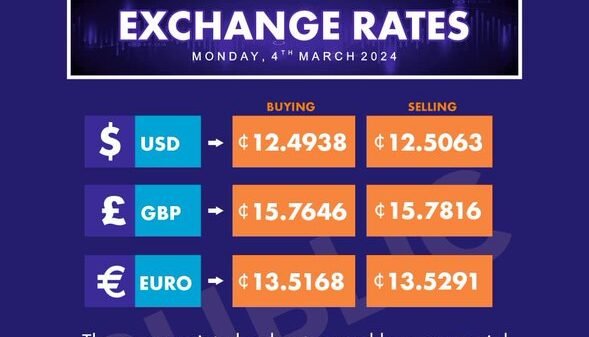Many of the industries with the highest growth potential in Ghana over the next ten years are in the services sector, but not all. For example, oil and agriculture will have segments with very rapid growth. Below is a very brief snapshot of where we see opportunities.
- Agriculture.
The agricultural sector is a key driver of the Ghanaian economy, contributing an estimated 21.3% for 2013 of the GDP.
- There is a greater opportunity in the local investment of crops and livestock as Ghana imports over US$450 million worth of rice alone annually and also substantial amounts of chicken, meat and dairy products.
Inadequate and inappropriate storage facilities are constraints to agricultural production, thereby contributing to high post-harvest losses and low returns for farmers and processors. Opportunities therefore abound for the storage side of agricultural businesses with solar storage facilities the new trend
- Financial services (banks and other financial institutions).
In Ghana, the financial services industry is categorized into three main sectors:
- Banking and finance (including non-bank financial services and forex bureaus);
- Insurance; and
- Financial market/capital markets.
The institutions include both foreign and local major banks, rural and community banks, savings and loans companies and other finance and leasing companies.
There is a high demand for various financial services in Ghana, as supported by the consistent high growth of companies in the banking sector. The relatively underdeveloped financial services sector in neighboring countries is an opportunity for financial service firms in Ghana to supply needed services in those countries.
Following Ghana’s oil discovery in commercial quantities and on-going exploration activities, enormous opportunities exist for the banking and financial sector to finance and insure the numerous large-scale transactions taking place.
- Construction.
Investment to deliver infrastructure is very viable and this shows how investment into construction hasn’t been consumed yet indicating how the construction of Ghana’s infrastructure is not yet complete. With the booming real estate industry and high demand for infrastructure development, Ghana provides a wide range of possibilities for companies entering the market.
Most non-emergency government contracts for road construction are open to both local and international companies through a process of competitive bidding. There are many smaller local companies that would also be seeking partnership for financial assistance, equipment and training.
- Crude Oil
Foreign-based companies continue to enter the market and in sectors, such as oil and gas, the recent introduction of the local content laws means that a large number of foreign companies operating in Ghana require local partnerships in order to be allowed to do business. The discovery of oil in 2007 in Ghana’s Jubilee Field is worth $1.5 billion to $2 billion has driven many oil and gas investors to Ghana.
- Energy
Electricity accounts for 69% of modern energy used in the economy.
Electricity generation and distribution is largely state owned. However, the Government of Ghana has in recent times engaged in discussions with various investors regarding the construction of power plants. This is important because the country is going through its worst power crisis to date.
Ghana loses about 2% to 5% of GDP annually as a result of lost economic output due to the insufficient and unreliable power supply. There is therefore huge demand for investors in this sector.
- Mining
Significant mining investment has been attracted into the country over some 21 years of stable multi-party democracy. The mining sector has therefore been an important part of Ghana’s economy, with gold accounting for over 90% of the sector. The mining sector has produced 4,313,190 ounces of gold, which is the highest ever in the history of the country, resulting in export revenues of more than $5.6 billion. Ghana is the second largest gold producer in Africa and the 9th largest producer in the world. The sector directly contributed 38.3% of Ghana’s total corporate tax earnings, 27.6% of government revenue and 6% GDP in 2011.This has included the development of a database on goods & services required by the mining industry; Investing in gold mining and services provides a huge opportunity
- Tourism.
Ghana, is seen by travelers as one of the friendliest countries in Africa. Ghana is endowed with interesting tourist attractions, ranging from the warm sandy beaches of the Atlantic coast to rich tropical forests and unique wildlife. There are also cultural attractions such as handicrafts, traditional clothes (e.g. Kente), local cuisines, and several colorful festivals organized throughout the year. Ghana is also known for its historical European-built forts and castles that played a major part in the transatlantic slave trade. Opportunities abound in the setting up of resorts and hotels along these areas. Ghana is also one of the West African countries never affected by the Ebola disease. Ghana is easily accessible from various parts of the world.
- E-tailing/ E-commerce.
This is a sector that is gradually gaining grounds in the bigger cities with the growing middle class and an increase in internet penetration. The payments system is in place, logistics are improving, and online providers are trusted. Many retailers will adapt, often with far fewer physical locations. Lamudi, Tisu.com, Jumia are all foreign owned.
Until recently, most goods were carried by individual truck owner–operators. As express parcels become a bigger industry on the back of e-tailing, e-commerce companies themselves are investing billions in modern warehouses and trucks. Zoobashop and Jumia are committed to investing on its own logistics.
Ghana provides a perfect place for investment in information technology due to its democratic stability and a young budding talents and opportunities in the country.
- Education.
Private universities are the places to invest. Ghana has become the center of education for its neighbors, notably Nigeria. Currently there are about 51 private universities affiliated to the Government universities. People are willing to spend on tutoring and support for their children is almost unlimited. As the middle class becomes wealthier, the increased ability to spend will drive market growth.
- Entertainment.
Ghana has a burgeoning indoors entertainment industry. Investment in movie theaters has yielded 100 percent profits for companies like SilverBird, the only operators of movie cinemas in Ghana; they have enjoyed monopoly for a long time. Currently aside indoors movie cinemas, Ghana lacks indoor multi-purpose arenas which could be used to stage music concerts and also host both international and local conferences/summits. The only available auditorium currently being used in the whole of Ghana is the Accra International Conference Center with a capacity of about 1600 people in its plenary hall. An investment into a modern state of the art multipurpose arena will result in massive profits.
Source: ghanatrade.org

















![Money Transfer Services operating in Ghana [Remittance Guide] Money Transfer Services operating in Ghana [Remittance Guide]](https://ghanaonline.net/wp-content/uploads/2023/10/omid-armin-8Nppe0yLmn8-unsplash-600x337.jpg)







